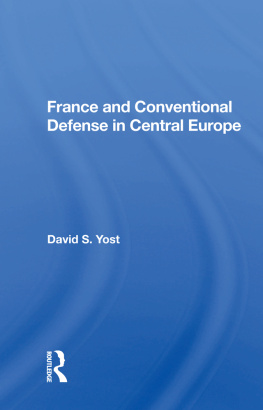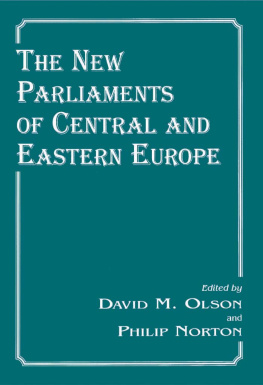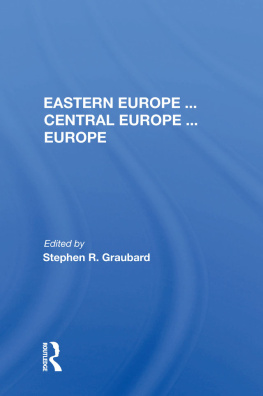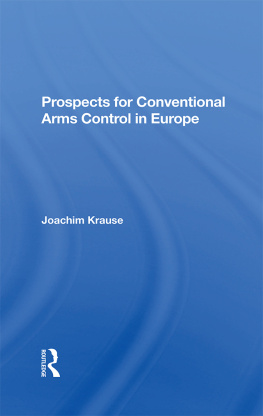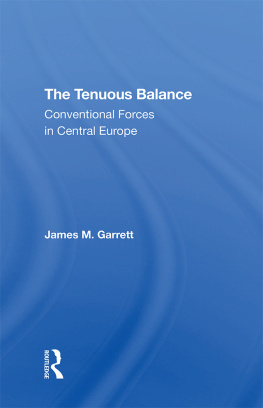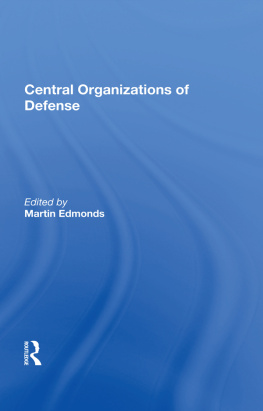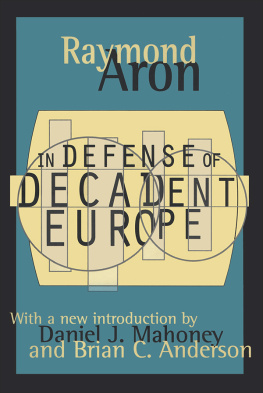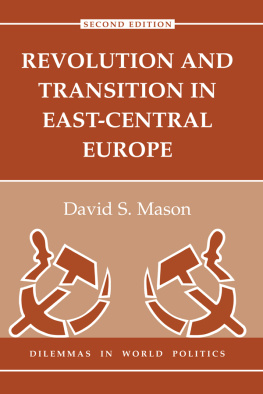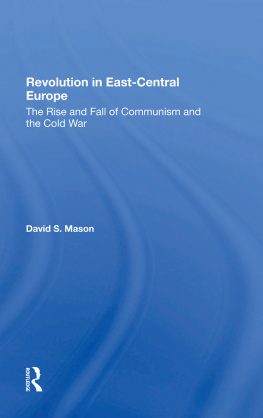France and Conventional Defense in Central Europe
Westview Special Studies
The concept of Westview Special Studies is a response to the continuing crisis in academic and informational publishing. Library budgets are being diverted from the purchase of books and used for data banks, computers, micromedia, and other methods of information retrieval. Interlibrary loan structures further reduce the edition sizes required to satisfy the needs of the scholarly community. Economic pressures on university presses and the few private scholarly publishing companies have greatly limited the capacity of the industry to properly serve the academic and research communities. As a result, many manuscripts dealing with important subjects, often representing the highest level of scholarship, are no longer economically viable publishing projectsor, if accepted for publication, are typically subject to lead times ranging from one to three years.
Westview Special Studies are our practical solution to the problem. As always, the selection criteria include the importance of the subject, the work's contribution to scholarship, and its insight, originality of thought, and excellence of exposition. We accept manuscripts in camera-ready form, typed, set, or word processed according to specifications laid out in our comprehensive manual, which contains straightforward instructions and sample pages. The responsibility for editing and proofreading lies with the author or sponsoring institution, but our editorial staff is always available to answer questions and provide guidance.
The result is a book printed on acid-free paper and bound in sturdy, library-quality soft covers. We manufacture these books ourselves using equipment that does not require a lengthy makeready process and that allows us to publish first editions of 300 to 1000 copies and to reprint even smaller quantities as needed. Thus, we can produce Special Studies quickly and can keep even very specialized books in print as long as there is a demand for them.
About the Book and Author
A widespread policy prescription among defense experts of the Atlantic Alliance is the strengthening of conventional forces to reduce dependence on the early use of nuclear weapons in the event of Soviet aggression. Dr. Yost examines the critical role France could play in establishing a more powerful conventional deterrent for the West and discusses French policy toward conventional defense contingencies in Europe. He reviews the development of France's military doctrine, its cooperation with the alliance since withdrawing from its integrated military structure in 1966, and its army and air force capabilities (including reserves and logistics), together with assessments of France's possible impact on the NATO-Warsaw Pact conventional military balance. The prospects and military significance of the new Force d'Action Rapide are analyzed in depth, including its importance in domestic politics and Franco-West German relations. Dr. Yost concludes by assessing the implications of France's probable refusal to make more than marginal improvements in its conventional defense capabilities.
David S. Yost is an associate professor at the U.S. Naval Postgraduate School, where he serves as coordinator of European Security Studies. Dr. Yost has specialized in international security policy issues associated with Europe, the USSR, and arms control. He is the author of European Security and the SALT Process, Washington Paper no. 85 (1981), and the editor of NATO's Strategic Options: Arms Control and Defense (1981).
Published in cooperation with the European American Institute for Security Research
The European American Institute for Security Research (EAI) was established in 1974 to promote discussion of North American and European security problems in an informal and unofficial setting before governmental positions have crystallized and hardened. As one means of furthering this aim, the Institute holds workshops in the United States and Europe several times a year. These workshops provide an unprecedented opportunity to stimulate and build on research in progress on both sides of the Atlantic in ways that contribute both to scholarship and the formation of future policy. The EAI papers publishes selected monographs presented at or prepared for the workshops, together with occasional research and other papers.
Organizing Committee:
Albert Wohlstetter, President
Uwe Nerlich, Vice President
James Digby
Pierre Hassner
Fred S. Hoffman
Johan J. Holst
Kenneth Hunt
Laurence Martin
Thierry de Montbrial
Henry S. Rowen
Advisory Board:
Richard Burt
Fred C. Ikt
Lothar Ruehl
P.O. Box 9844
Marina del Rey
California 90292
(213) 822-1416
France and Conventional Defense in Central Europe
David S. Yost
First published 1985 by Westview Press
Published 2018 by Routledge
52 Vanderbilt Avenue, New York, NY 10017
2 Park Square, Milton Park, Abingdon, Oxon OX14 4RN
Routledge is an imprint of the Taylor & Francis Group, an informa business
Copyright 1985 by David S. Yost
All rights reserved. No part of this book may be reprinted or reproduced or utilised in any form or by any electronic, mechanical, or other means, now known or hereafter invented, including photocopying and recording, or in any information storage or retrieval system, without permission in writing from the publishers.
Notice:
Product or corporate names may be trademarks or registered trademarks, and are used only for identification and explanation without intent to infringe.
Library of Congress Cataloging in Publication Data
Yost, David S. (David Scott), 1948
France and conventional defense in central Europe.
(Westview special studies in military affairs)
Bibliography: p.
Includes index.
1. FranceMilitary policy. 2. FranceArmed Forces.
3. Warfare, Conventional. 4. EuropeDefenses.
I. Title. II. Series.
UA700.Y67 1985 355'.033044 85-3303
ISBN 13: 978-0-367-00845-1 (hbk)
MAPS
TABLES
This book originated in a paper presented at a European American Institute Workshop held in Washington, D.C. The book first received limited circulation in 1984 in the EAI Paper series (paper no. 7) published by the institute, and in October 1984, Albert Wohlstetter, (the institute's president) and Frederick A. Praeger agreed that the book should be brought to a wider audience.
I would like to thank Albert Wohlstetter and Uwe Nerlich, vicepresident of the institute, for inviting me to prepare the original paper. Profound thanks are also owed to Brigadier Kenneth Hunt, who edited the first draft of the book, and to Cynthia Price Romanak, who provided invaluable editorial and practical assistance in guiding the original publication through the production process. French participants in the workshop to whom I am indebted for paricularly useful critical comments include Pierre Hassner, Pierre Lellouche, and Thierry de Montbrial.
Among other French experts interviewed, I would like to express my sincere appreciation to Yves Boyer, Jean Klein, General Guy M6ry, Dominique Mosi, General Lucien Poirier, General Pierre Sant-Macary, Francois de Rose, and Georges-Henri Soutou. I also extend my gratitude to Sherman Blandin, Harry Dinella, Jean Est&ve, Robert Komer, Diego Ruiz Palmer, Patrick Parker, Robert Shishko, Peter Stratmann, and Steve Swegle for comments, advice, and other practical assistance.


